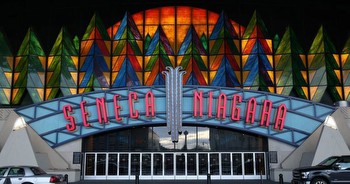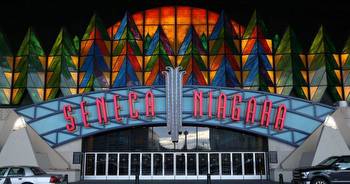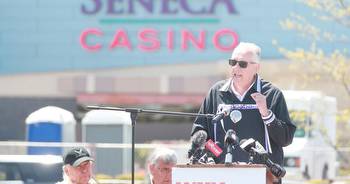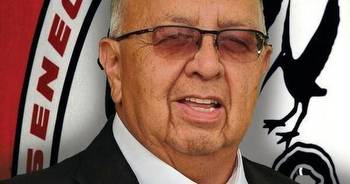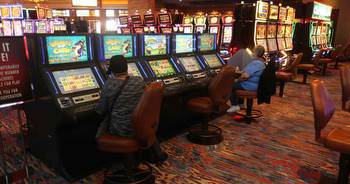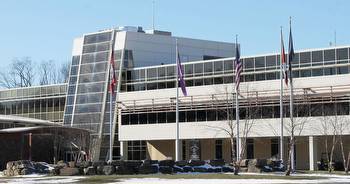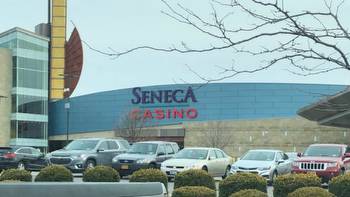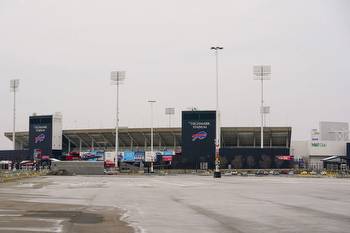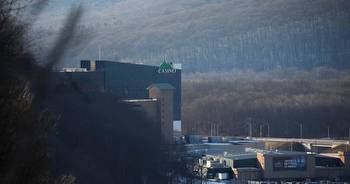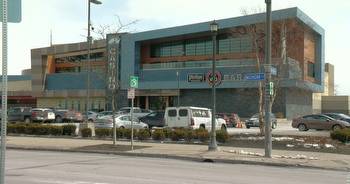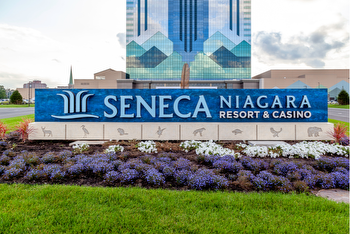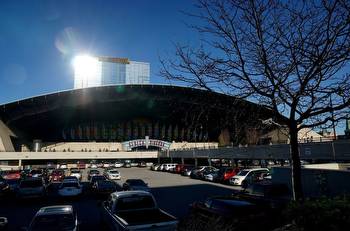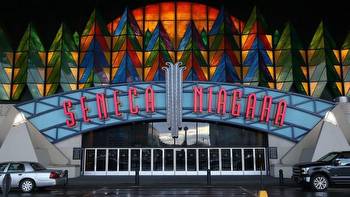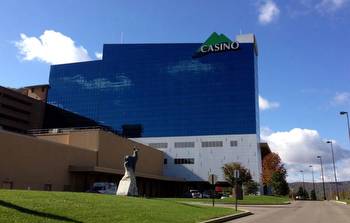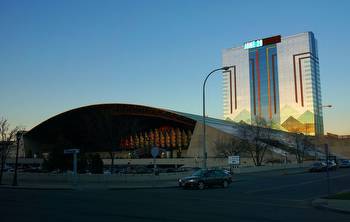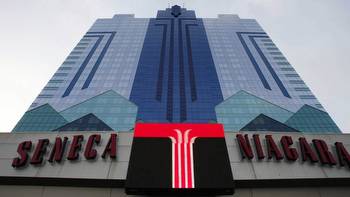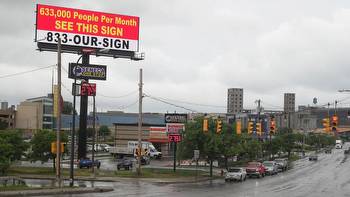With Seneca payment, casino cash will again flow to Buffalo, Niagara Falls and Salamanca
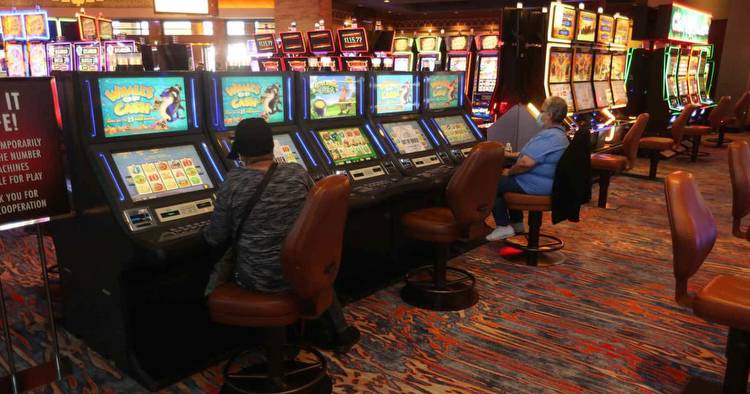
The Buffalo Bills won't be the only beneficiaries of the $564.8 million in long-owed casino revenues that Gov. Kathy Hochul extracted from the Seneca Nation this week.
While Hochul proposed targeting the vast majority of that money to the new Bills stadium, the cities of Buffalo, Niagara Falls and Salamanca will benefit as well. The state will send $34.8 of the money from the Senecas to the city of Buffalo, the governor's office said. Meanwhile, Niagara Falls will get $38.9 million and Salamanca will share $16.4 million with Cattaraugus County.
Buffalo Mayor Byron W. Brown, for one, is happy that Hochul finally got that money out of the Senecas.
"I think the governor did what had to be done," Brown said in an interview.
What Hochul did was something creditors have long been able to do to force their debtors to pay up. Relying on a state debt collection law, she went to KeyBank and asked for a freeze to be put on the Senecas' accounts until they paid their bill to the state.
The move meant that starting a week ago, many Senecas couldn't access their money via ATMs. Meanwhile, the tribe wasn't able to meet payroll or pay any of its other bills.
Faced with a dire situation, the Seneca Nation Council voted last Monday to send the payment to the state.
But the Senecas weren't happy about it. The tribe's president, Matthew Pagels, said the governor turned the long-disputed payment into "ransom money."
Brown, however, offered a different take on the situation.
"I think it's good that the Seneca Nation has finally voted to send this money to the state," he said. "We have been waiting for this money for years. We will put it to good use."
The money covers five years – 2017 through 2021 – in which the Senecas insisted they no longer had to share slot machine revenues with the state.
Under the 14-year compact that the state and the Senecas struck in 2002 that led to the creation of the tribe's three casinos, the Senecas agreed to send 25% of their slot revenues to the state over the last seven years of the agreement.
That deal included a provision for an automatic seven-year renewal, but the Senecas insisted that there was no provision in it that forced them to share revenues with the state during the renewal period.
Courts have repeatedly disagreed, ordering the Senecas to pay the money to the state, but the tribe was unwilling to do so until Hochul forced their hand.
That 2002 casino compact called for about 25% of the money the state gets from the Senecas to be shared with the communities that host the tribe's casinos. That meant that when the Senecas refused to pay the state, the municipalities fell short of expected cash, too.
Brown indicated that shortfall wasn't especially burdensome. For one thing, the state forwarded money to the city to cover some of the casino revenues it had expected to get. And for another, the city has been awash in federal stimulus funds in the past year.
Still, Brown was happy that the city will soon be receiving that long-awaiting slot machine revenue.
"We will put the money to good use," he said.
The absence of the slot machine money had a much bigger impact in Niagara Falls, where it was targeted to cover about 10% of the city's budget in the late 2010s and slightly less in recent years. The state has been fronting some money to help the city patch the hole in the budget caused by the absence of the funds from the Senecas, but Mayor Robert Restaino said the remaining shortfall, combined with the pandemic, put plenty of pressure on the city budget in 2020.
The city cut some unfilled staff positions as a result and still ended 2020 with a deficit, but a tourism rebound last year left the city back in the black, Restaino said.
The Niagara Falls mayor wasn't as enthusiastic as Brown, though, regarding Hochul's move to force the Senecas to pay their bills.
"As a lawyer I understand the tools that are available, and so I wouldn't second guess the state government's capacity or ability to use the state law to their advantage" to try to collect the debt, Restaino said.
But he also noted that it's important that the Senecas and the state get beyond the controversy over the payment and start negotiating a new casino compact, given that the current one expires at the end of next year.
Restaino did not criticize the Seneca Nation for withholding the payment for so long.
"We also have to maintain a relationship with our neighbors – and the Seneca Nation has 51 acres in downtown Niagara Falls," Restaino said. "And so what we have to do, and I would continue to do, is maintain a very good working relationship."
Regarding Hochul's move to force the tribe to pay up, Restaino added: "Do I wish it would have had to come to this? Of course you never want to see that happen."








